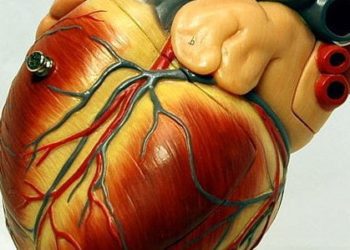Coronary angiography in asymptomatic patients may lead to inappropriate percutaneous interventions
1. Roughly one quarter of patients who received elective coronary angiography were asymptomatic.
2. Hospitals with higher rates of elective angiography in asymptomatic patients also had higher rates of inappropriate intervention (such as stent deployment), which suggesting that coronary angiography selection was associated with the appropriateness of coronary intervention.
Evidence Rating Level: 2 (Good)
Study Rundown: Percutaneous coronary intervention (PCI) is a cardiac procedure that can improve the quality of life and mortality in the appropriate patient population. However, there is significant variability amongst hospitals in the selection criteria, which can lead to unnecessary PCI. This can potentially be very dangerous. The purpose of this study was to determine whether the selection of patients for coronary angiography affects if patients inappropriately receive PCI. Patient data was obtained from the CathPCI Registry, the largest registry of diagnostic cardiac catheterizations and PCI in the US. The results of this study suggest that about a quarter of patients who receive coronary angiography are asymptomatic, and there is marked variability in this number across hospitals (1-73%). In addition, hospitals with higher rates of elective angiography in asymptomatic patients also had higher rates of inappropriate PCI, which suggests that coronary angiography selection is associated with the appropriateness of coronary intervention.
A major strength of the study was that the data was obtained from a very large registry of patient information, which makes the results generalizable. However, a large proportion of the data was excluded based on missing pre-catheterization cardiac testing data, which can bias the results, since those patients may in fact have been appropriately chosen for cardiac catheterization. The investigators did attempt to account for this by assigning those patients with theoretic pre-catheterization results, so that they could be in the “appropriate” and “inappropriate” group and then analyze with those simulations.
Click to read the study, published today in JAMA Internal Medicine
Relevant Reading: Appropriateness of Diagnostic Catheterization for Suspected Coronary Artery Disease in New York State
In-Depth [retrospective cohort]: The study consisted of patients that belonged to the CathPCI registry. Patients included in the study were those undergoing elective coronary angiography and PCI from July 1, 2009 and September 30, 2013 in the US. The final cohort that was analyzed consisted of 544 hospitals that included 1,225,562 elective coronary angiograms and 203,158 elective PCIs. Evidence based algorithms were used to determine the appropriateness of the coronary procedures, where PCI was considered inappropriate when the procedure was unlikely to improve the patient’s health status, including symptoms, function, quality of life, or survival.
Of all patients included in the study who underwent elective diagnostic coronary angiography, 25.1% were asymptomatic at the time of the procedure. The median hospital proportion of asymptomatic patients who underwent coronary angiography was 24.7% (range, 1.0 – 73.6%). The hospital proportion of asymptomatic patients undergoing angiography was positively correlated with rates of inappropriate PCI (Spearman ρ = 0.51, P<0.001).
More from this author: Blood clot prophylaxis medicine inpatient may be unnecessary, Chest pain may be better than EKG, echo for predicting coronary artery disease prognosis, Strict blood pressure control in kidney disease linked to worse outcomes, Catheter thrombolysis + anticoagulation may be inferior to anticoagulation alone in DVT, Pediatric brain injury unlikely with isolated loss of consciousness, Ultrasound, flow reserve guided coronary interventions provide minimal benefit
Image: PD
©2012-2014 2minutemedicine.com. All rights reserved. No works may be reproduced without expressed written consent from 2minutemedicine.com. Disclaimer: We present factual information directly from peer reviewed medical journals. No post should be construed as medical advice and is not intended as such by the authors, editors, staff or by 2minutemedicine.com. PLEASE SEE A HEALTHCARE PROVIDER IN YOUR AREA IF YOU SEEK MEDICAL ADVICE OF ANY SORT.








